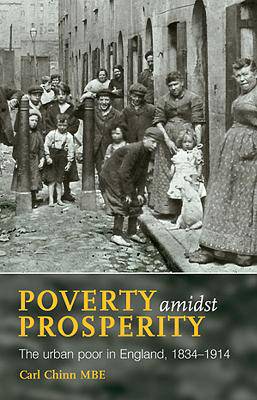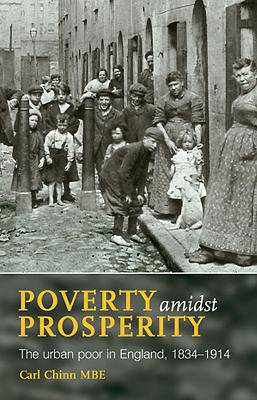
Je cadeautjes zeker op tijd in huis hebben voor de feestdagen? Kom langs in onze winkels en vind het perfecte geschenk!
- Afhalen na 1 uur in een winkel met voorraad
- Gratis thuislevering in België vanaf € 30
- Ruim aanbod met 7 miljoen producten
Je cadeautjes zeker op tijd in huis hebben voor de feestdagen? Kom langs in onze winkels en vind het perfecte geschenk!
- Afhalen na 1 uur in een winkel met voorraad
- Gratis thuislevering in België vanaf € 30
- Ruim aanbod met 7 miljoen producten
Zoeken
€ 12,95
+ 25 punten
Omschrijving
The upper and middle classes of Victorian England were marked out by their confidence: they boasted that the sun never set on their Empire; they believed they were destined to lead other nations; and they bragged that their civilization was pre-eminent. Their self-belief was assured because they lived in a country that had become rich through industrialization. But amidst great prosperity there was also much poverty. Deprivation and distress were widespread and obvious. In towns and cities, grand public and civic buildings were surrounded by poor dwellings later known as 'slums'. The poor crowded into these insanitary districts; they rented badly built dwellings with inadequate facilities; they did the dirtiest, hardest and most dangerous jobs; they ate the worst food; they suffered ill health and early deaths. Poverty blighted their lives. Many observers asserted that many of the poor were thriftless and feckless. They stated that the muckiness of the poor districts was caused by dirty people who did not wish to raise themselves out of the mire. Gradually, however, social investigators began to question these scathing generalizations, arguing that poverty was usually the result of economic conditions over which individuals and families had little or no control. This book is infused with a sense of social justice and is deeply affected by Carl Chinn's own background. The families of both his mother and father come from tough working-class streets in Birmingham which were marked out by their ties of kinship and neighborliness as much as by their bad housing and inadequate sanitation.
Specificaties
Betrokkenen
- Auteur(s):
- Uitgeverij:
Inhoud
- Aantal bladzijden:
- 162
- Taal:
- Engels
Eigenschappen
- Productcode (EAN):
- 9781859361269
- Verschijningsdatum:
- 1/11/2014
- Uitvoering:
- Paperback
- Formaat:
- Trade paperback (VS)
- Afmetingen:
- 155 mm x 231 mm
- Gewicht:
- 385 g

Alleen bij Standaard Boekhandel
+ 25 punten op je klantenkaart van Standaard Boekhandel
Beoordelingen
We publiceren alleen reviews die voldoen aan de voorwaarden voor reviews. Bekijk onze voorwaarden voor reviews.









